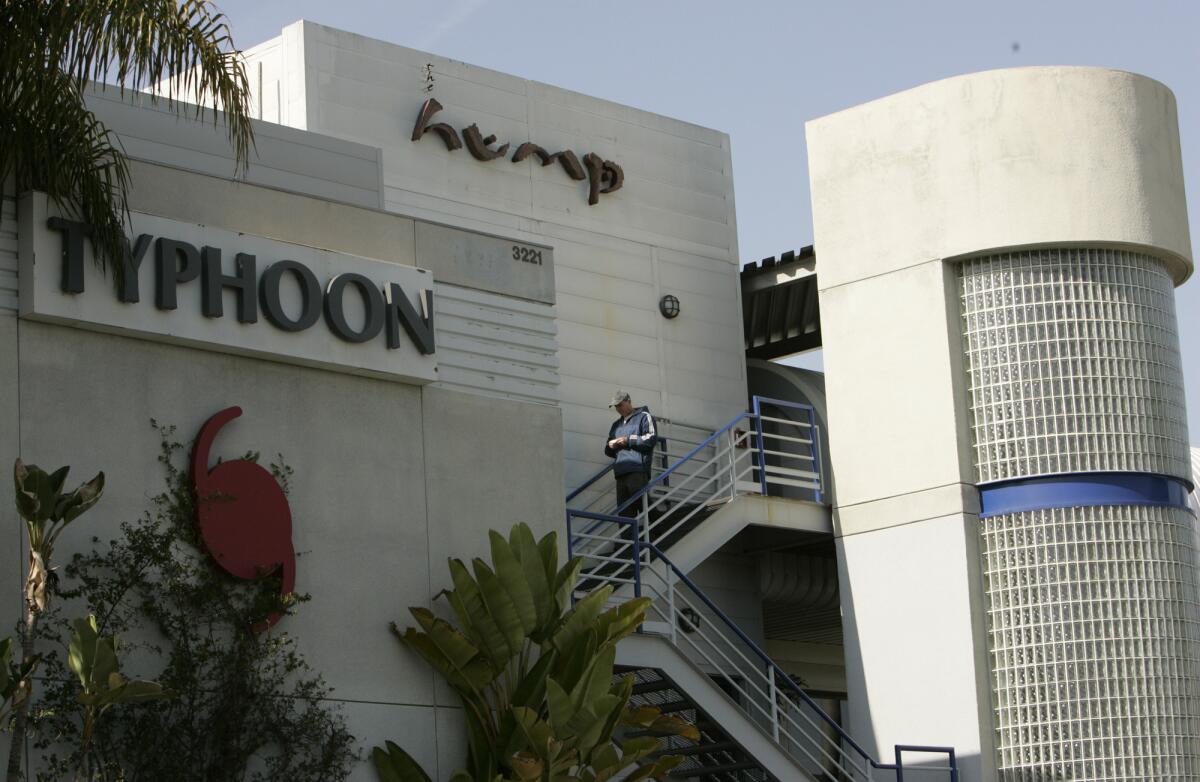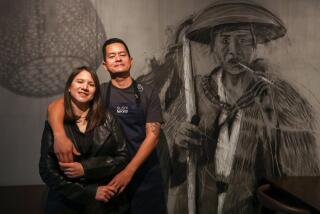Sushi chefs plead guilty in whale meat case

During dinner service at a Santa Monica restaurant a few years ago, a sushi chef known to customers as Yama disappeared out the back, car keys in hand. A few moments later, he reemerged clutching a package tightly wrapped in plastic.
The chef unraveled it to reveal a piece of meat, which he proceeded to cut into small strips. A customer at the sushi bar asked what it was; the chef didn’t respond. When a second inquired, he quietly replied:
“Whale.”
Unbeknownst to the chef, seated at his sushi bar that night was a coterie of federal agents: one U.S. Fish and Wildlife Service agent, one U.S. Customs and Border Protection officer and one agent with the National Oceanic and Atmospheric Administration, according to a federal affidavit.
On Monday, the chef, Kiyoshiro Yamamoto, appeared in federal court alongside head sushi chef Susumu Ueda to plead guilty to charges stemming from the 2010 sting operation. The investigation was launched after producers behind the documentary “The Cove” secretly filmed whale meat being served off-menu to customers at the restaurant called the Hump at Santa Monica Municipal Airport.
Yamamoto and Ueda were indicted early last year along with Typhoon Restaurant Inc., the company behind the restaurant.
The two chefs pleaded to misdemeanor counts of conspiracy and the sale of marine mammals in violation of the Marine Mammal Protection Act. They had initially been charged in a nine-count felony indictment that also included allegations of smuggling, obstruction and false statements. They are cooperating in the government’s case and could be called to testify in the trial against the restaurant, scheduled for April.
The supplier of the whale meat, Ginichi Ohira, pleaded guilty in 2011 and has yet to be sentenced.
At Monday’s hearing before U.S. District Judge Audrey Collins, the chefs said little other than to agree with statements recited by the prosecutor. They agreed that in 2007, Ueda got approval from the restaurant’s owner and manager to order several pounds of whale from Ohira. Yamamoto served the whale meat on at least two occasions in early 2010.
The order included about three kilograms of whale akami, or red meat; about two kilograms of whale bacon; and about two kilograms of whale onomi, or tail, for which the restaurant’s manager cut a check of $15,367.75, according to the plea. The plea agreements named restaurant owner Brian Vidor and manager Chris Schaefer, neither of whom has been charged, as being part of the conspiracy.
Ueda and Yamamoto each will face a maximum of three years in prison when they are sentenced May 12. Prosecutors said they would also recommend a $5,000 fine and 200 hours of community service.
Ueda’s attorney, James Spertus, said after Monday’s hearing that the outrage against his client over the sale of whale meat was misplaced. The veteran chef lived most of his life in Japan, where whale is regularly served, and had no part in the capture or importing of whale, the attorney said.
“He is going to endure the consequences of the crime, but it is inaccurate to suggest Mr. Ueda is somehow involved in killing Willy,” he said.
Assistant U.S. Atty. Mark A. Williams, however, said the consumption of whale had larger consequences: “Hopefully, people take this to heart.... It has huge effects on the environment and the species.”
Yamamoto’s attorney, Amanda Touchton, declined to comment.
More to Read
Sign up for Essential California
The most important California stories and recommendations in your inbox every morning.
You may occasionally receive promotional content from the Los Angeles Times.











